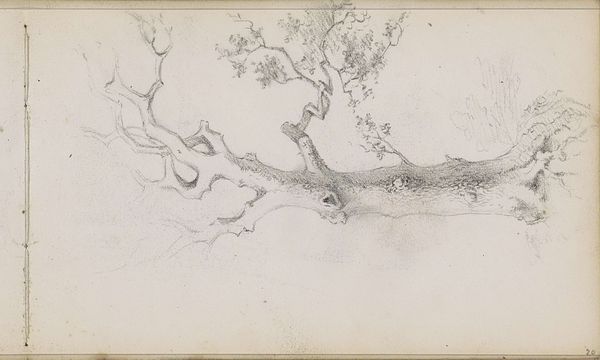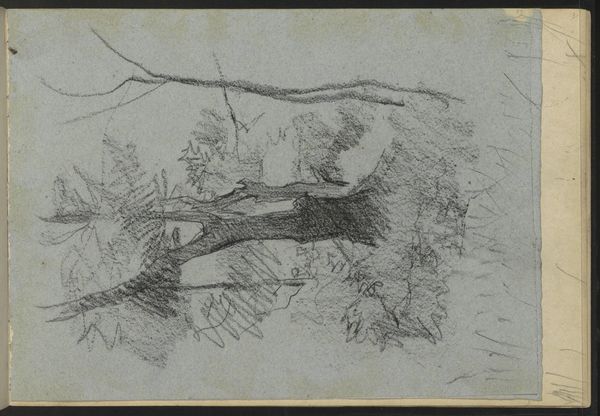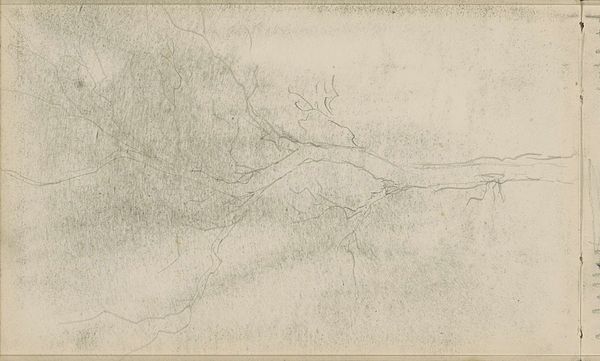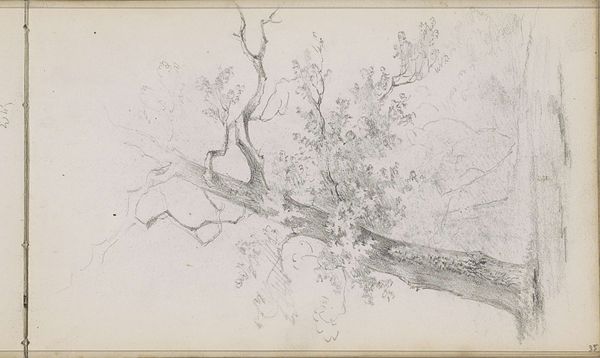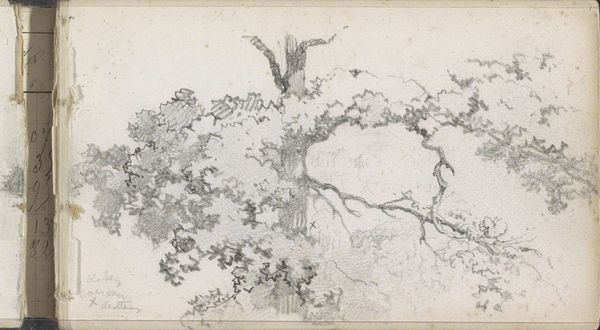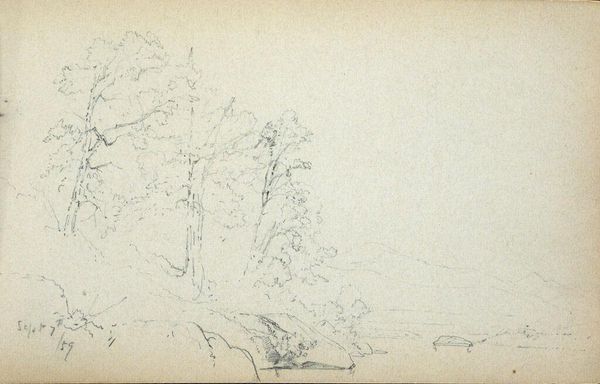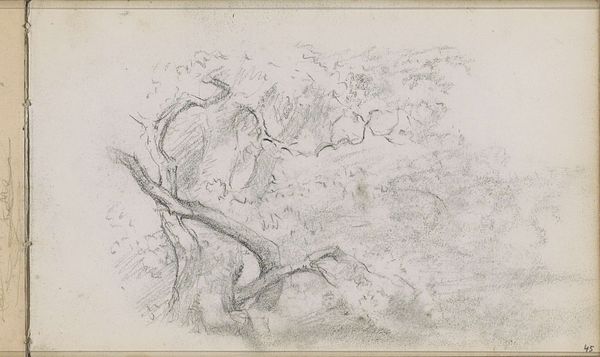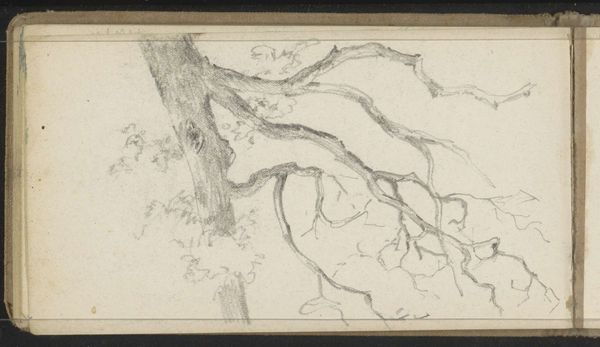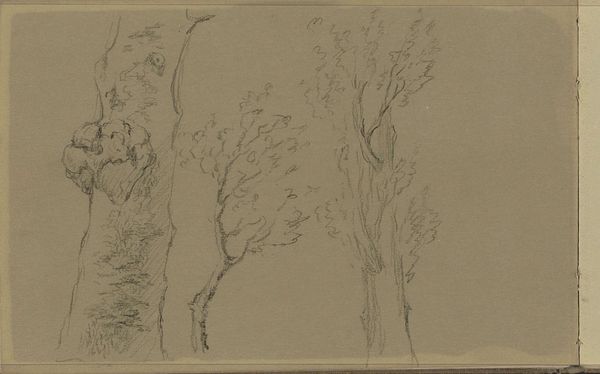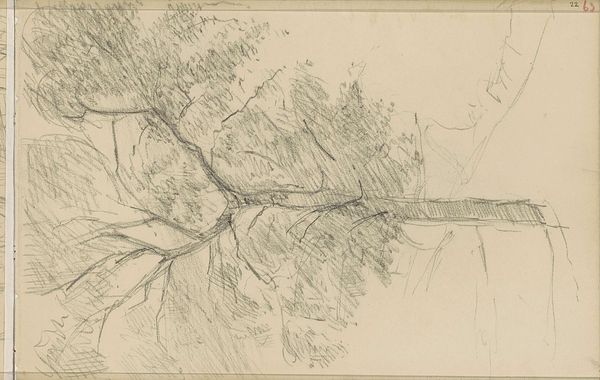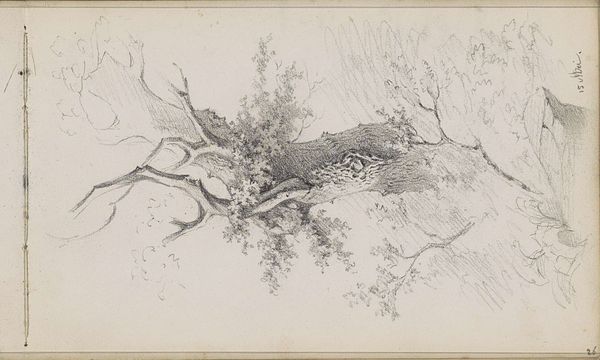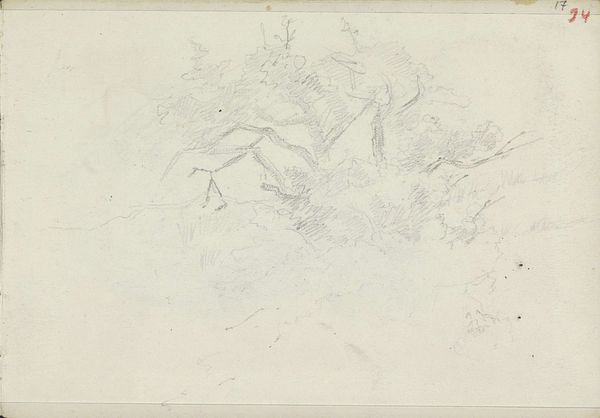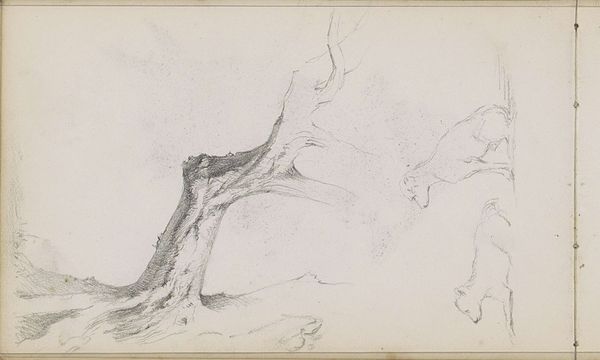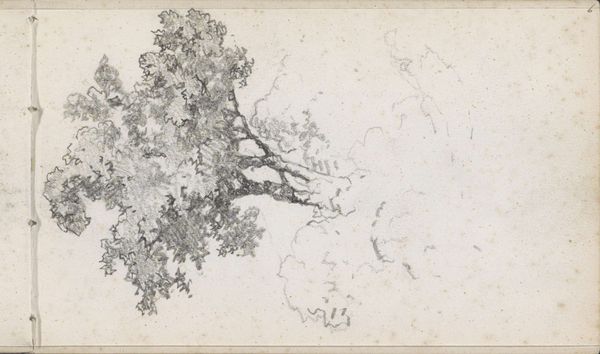
#
tree
#
toned paper
#
light pencil work
#
pen sketch
#
pencil sketch
#
personal sketchbook
#
ink drawing experimentation
#
pen-ink sketch
#
sketchbook drawing
#
sketchbook art
#
watercolor
Dimensions: height 113 mm, width 159 mm
Copyright: Rijks Museum: Open Domain
This sketch of trees was made by Willem Cornelis Rip, probably on location, using graphite pencil on paper. The immediacy of the medium is really key here. Graphite, a naturally occurring form of carbon, allows the artist to quickly capture tonal variations and textures. Look closely, and you'll see that the quality of the line varies depending on the pressure Rip applied, giving the branches depth and volume. But the choice of graphite also speaks to the social context. By the late 19th century, the Industrial Revolution had made pencils readily available and affordable. While other artists might have favored more elaborate, time-consuming media, Rip embraced a humble material that allowed for efficient image-making. It’s a great example of how the simplest means can yield sophisticated results. So, next time you see a pencil, remember it’s not just a tool, it’s a connection to a whole history of production and accessibility in art.
Comments
No comments
Be the first to comment and join the conversation on the ultimate creative platform.
